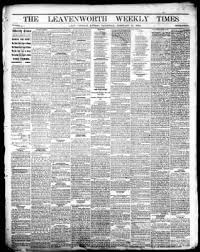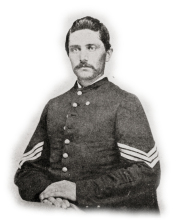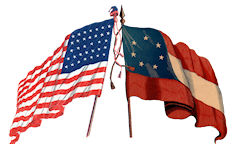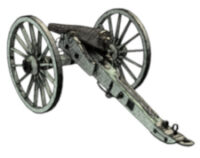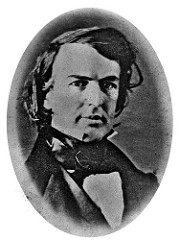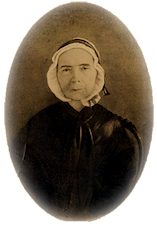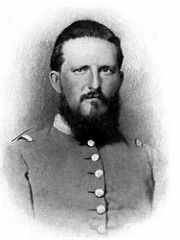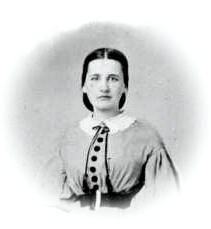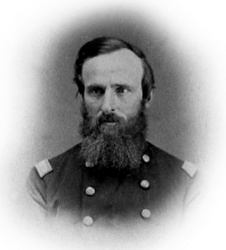September 17.–A fight took place at Mariatown, Mo., between six hundred Federals under Colonels Montgomery and Johnson and four hundred rebels, in which the latter were completely routed with a loss of seven killed, and one hundred horses and all their tents and supplies captured. The Nationals lost two privates killed and six wounded. Col. Johnson, while riding at the head of his command, was pierced by nine balls and instantly killed. Three bullets took effect in his head, two buck-shot in the neck, one bullet in the left shoulder, one in the left thigh, one in the right hand, and one in the left. He died, urging his men to fight for the Stars and Stripes.–Buffalo Courier, September 23.
–The Legislature of Maryland was prevented from organizing at Frederick by the arrest of its clerk and several of the members. During the evening the Union members of the House and Senate met in caucus and resolved that, the action of the Senators present in not assembling having virtually brought the Legislature to an end, they would return to their homes and not attempt again to assemble.
–This evening a train on the Ohio and Mississippi road, containing a portion of Colonel Torchin’s Nineteenth Illinois regiment, while passing over a bridge near Huron, Ind., one hundred and forty-three miles west of Cincinnati, fell through, killing and wounding over one hundred soldiers.–Louisville Courier, September 10.
–A large concourse of citizens from all parts of the State assembled at Hartford, Conn., today, to listen to Hon. D. S. Dickinson and others. General James T. Pratt presided. All the political parties of the State were represented, and places of business were closed during the meeting. Mr. Dickinson’s speech was one of his best efforts, and had a powerful effect. Senator Latham, of California, sent a letter of apology for his absence, full of patriotic spirit. Thomas Francis Meagher sent a despatch as follows: ” I cannot go to Hartford to-day. I go to the war. Talking is over. Fight is the word.” –National Intelligencer, September 20.
–Two fights occurred at Blue Mills Landing, Mo., to-day. The first was between five hundred of the Third Iowa regiment, with one piece of artillery, under Lieutenant-Colonel Scott, and about four thousand rebels. After a desperate struggle of an hour’s duration, in which Scott lost one hundred and twenty killed and wounded and all his horses, he retreated slowly half a mile, dragging his cannon by hand. He subsequently took a position with his howitzer on an eminence, and waited for the enemy to renew the attack. But he was not pursued. Not long afterward Colonel Smith’s command, with four pieces of cannon, approached Blue Mills by another road and engaged and routed the rebels as they were about crossing the Missouri River.–(Doc. 53.)
–The Fifteenth regiment (Elmira Engineers) N. Y. S. V., under the command of Colonel C. B. Stuart of Geneva, left Elmira for the seat of war.–N. Y. Herald, Sept. 22.
–Clement Smyth, the Roman Catholic Bishop of Dubuque, Iowa, in a letter to the Adjutant-General of that State, held the following language: “I ever avoid all matters of a political nature as foreign to my sacred duties, yet in this present hour of trial, when the honer and the happiness of our nation are at stake; when some prejudiced mind may construe my silence into a disrespect for you, whose friendship I highly prize, or into a criminal opposition to our National Government– the Government of the United States, the only one to which I owe fealty–it may not be departing too far from my usual course to say that my feelings and sentiments are for the Union, and though peace is now the darling object of my ambition, yet I would not consent to purchase peace at the sacrifice of principle.”
–At Washington the following order was issued to-day from the War Department:
The commanding officer at Hatteras Inlet, N. C., is hereby authorized to accept the services of such loyal North Carolinians–not to exceed one regiment–as in his neighborhood may volunteer to take up arms for the United States, and to designate regular officers to muster them into the service. The recruits will be organized in the first instance into a battalion or regiment according to numbers. The mustering officer will make timely requisition for arms and other necessary supplies. The commanding officer will, on the recommendation of the volunteers, propose such persons as officers as he may deem suitable, to officer the companies that may, if approved, be commissioned by the President.
L. Thomas, Adj.-Gen.
–The anniversary of Washington’s Farewell Address was celebrated by Cassius M. Clay’s Washington Guards. Professor Amasa McCoy, Secretary of the Guards, delivered an Oration on “The London Times on the Rebellion and the war against the National Constitution.”
–The Continental Guard, Forty-eighth regiment N. Y. S. V., under the command of Colonel James H. Perry, left Fort Hamilton this morning for the seat of war. The regiment numbers about one thousand men, well equipped and armed with Enfield rifles. The uniform is the United States regulation. A considerable number of the men were formerly members of the Seventy-first. About sixty recruits, not yet uniformed, were left in charge of the camp, near Fort Hamilton, under Lieutenant Wallace. Colonel Perry, the commandant of the regiment is well-known as a West Point graduate. N. Y. Evening Post, Sept 17.
